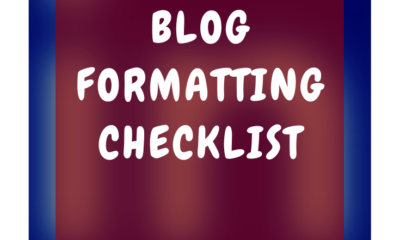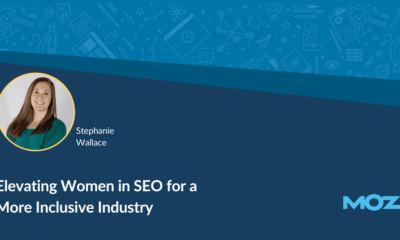Woman Defrauded in Fake Rich Grandma Gift Card Scam on Facebook

- A woman reported being scammed out of $15,000 in an elaborate con.
- It began when she was contacted by a “wealthy grandmother” offering to give her more than $1 million, provided she pay some taxes upfront.
- As is common in these kinds of scams, the woman was made to purchase gift cards and provide all the info to the criminals over the phone.
We’re going to tell you a little story about somebody who got scammed—and by what may seem like a very obvious scam. An “I’d never fall for that” kind of scam. So let’s make sure we start this out by getting one thing straight: You, too, will one day get scammed, if you haven’t already. And maybe it won’t be an elaborate con, or falling prey to a “pay your overdue taxes in gift cards by phone” kind of scam. But it will happen to every one of us, because we all share one trait: thinking we’re too clever to get conned.
As the Athens Banner-Herald reports, a Jackson County woman was apparently confident enough in her abilities to sniff out a scam that she bought into one hook, line, and sinker. Whether she had initial trepidations or not when she got a Facebook message telling her a wealthy grandmother wanted to give her $1.5 million and a new house, she was confident enough in her judgement to go all in, even when she was told she would have to pay $15,000 in taxes up front.
“During the coming weeks,” the Banner-Herald reports, “…the Braselton woman went shopping for Foot Locker, Razer Gold and Apple gift cards.” She was prompted to give the activation numbers and pictures of the cards to her “grandmother” via WhatsApp. She interacted with two men over the phone who likely were the scammers. “They identified themselves as the brother and lawyer of the grandma,” the Banner-Herald notes, “…who had told the victim that she became rich by winning $343 million in a Powerball lottery.”
The woman in question was sent several checks by the “rich grandmother,” but they all bounced. And now, that Jackson County woman is out of money, and with little recourse for its return. Sheriff Janis Mangum said, “There is no hope” because the victim gave the scammers all the information they needed. “I feel like I’m beating a dead horse,” the sheriff added regarding how often she warns people about these kind of scams. “I put this out all the time.”
In stories like these, our brains jump to blame the victim. “How stupid can you be?” we think. Why do we go there first, instead of being angry at those pulling the con? Get angrier at the folks who fall for the “wallet inspector” trick than the person who took the wallet? Not only is that mentality irrational, it can be downright harmful. As Michelle Singletary said in the Washington Post:
“We must remember that these people are victims and that our attitudes can keep them from reporting these crimes. If they’re too embarrassed or ashamed to admit what happened to them, it allows the scheme to continue or emboldens others to prey on people.”
So why do our brains do this? Tell us to be mad at victims of scams, instead of the scammers? Because our brains can talk us into just about anything. Heck, for the people pulling these scams, their brains have talked them into whatever they have to think to justify stealing people’s savings. “I gotta do what I gotta do to survive,” “It’s their fault for being so gullible,” “You know, technically one way to interpret Marx’s Debates on the Law on Thefts of Wood…” (Look, maybe they’ve got a Poli-Sci Masters, who can say? Not that you can pay down student loan debt with Foot Locker gift cards). Our brains can talk us into falling for cons, for committing cons, all while convincing us we’d never fall for one ourselves, and we’re better than the people who do.
But just this once, maybe don’t instantly decide you’re smarter than the Jackson County woman in question. Maybe take the time you’d spend chuckling at a person losing money, and use that time to call up your dad, call up your grandma, and make sure they know they’d never be asked to pay the government in gift cards. Let them know that if they get a suspicious message on social media, to check with you, and you’ll help them determine if it’s real. And that if they do get scammed, they should know that they can come to you for help, and you won’t make them feel worse about it.
But hey, why bother, right? You’re too smart to get fooled, and the people around you are all too smart for that. It’ll never happen to you. You’re too smart.
So smart, in fact, that we’ve got a great investment opportunity, just for you.
You just have to pay some taxes upfront…

News Editor
Michael Natale is the news editor for Best Products, covering a wide range of topics like gifting, lifestyle, pop culture, and more. He has covered pop culture and commerce professionally for over a decade. His past journalistic writing can be found on sites such as Yahoo! and Comic Book Resources, his podcast appearances can be found wherever you get your podcasts, and his fiction can’t be found anywhere, because it’s not particularly good.
Facebook Faces Yet Another Outage: Platform Encounters Technical Issues Again

Uppdated: It seems that today’s issues with Facebook haven’t affected as many users as the last time. A smaller group of people appears to be impacted this time around, which is a relief compared to the larger incident before. Nevertheless, it’s still frustrating for those affected, and hopefully, the issues will be resolved soon by the Facebook team.
Facebook had another problem today (March 20, 2024). According to Downdetector, a website that shows when other websites are not working, many people had trouble using Facebook.
This isn’t the first time Facebook has had issues. Just a little while ago, there was another problem that stopped people from using the site. Today, when people tried to use Facebook, it didn’t work like it should. People couldn’t see their friends’ posts, and sometimes the website wouldn’t even load.
Downdetector, which watches out for problems on websites, showed that lots of people were having trouble with Facebook. People from all over the world said they couldn’t use the site, and they were not happy about it.
When websites like Facebook have problems, it affects a lot of people. It’s not just about not being able to see posts or chat with friends. It can also impact businesses that use Facebook to reach customers.
Since Facebook owns Messenger and Instagram, the problems with Facebook also meant that people had trouble using these apps. It made the situation even more frustrating for many users, who rely on these apps to stay connected with others.
During this recent problem, one thing is obvious: the internet is always changing, and even big websites like Facebook can have problems. While people wait for Facebook to fix the issue, it shows us how easily things online can go wrong. It’s a good reminder that we should have backup plans for staying connected online, just in case something like this happens again.
Christian family goes in hiding after being cleared of blasphemy

LAHORE, Pakistan — A court in Pakistan granted bail to a Christian falsely charged with blasphemy, but he and his family have separated and gone into hiding amid threats to their lives, sources said.
Haroon Shahzad, 45, was released from Sargodha District Jail on Nov. 15, said his attorney, Aneeqa Maria. Shahzad was charged with blasphemy on June 30 after posting Bible verses on Facebook that infuriated Muslims, causing dozens of Christian families in Chak 49 Shumaali, near Sargodha in Punjab Province, to flee their homes.
Lahore High Court Judge Ali Baqir Najfi granted bail on Nov. 6, but the decision and his release on Nov. 15 were not made public until now due to security fears for his life, Maria said.
Shahzad told Morning Star News by telephone from an undisclosed location that the false accusation has changed his family’s lives forever.
“My family has been on the run from the time I was implicated in this false charge and arrested by the police under mob pressure,” Shahzad told Morning Star News. “My eldest daughter had just started her second year in college, but it’s been more than four months now that she hasn’t been able to return to her institution. My other children are also unable to resume their education as my family is compelled to change their location after 15-20 days as a security precaution.”
Though he was not tortured during incarceration, he said, the pain of being away from his family and thinking about their well-being and safety gave him countless sleepless nights.
“All of this is due to the fact that the complainant, Imran Ladhar, has widely shared my photo on social media and declared me liable for death for alleged blasphemy,” he said in a choked voice. “As soon as Ladhar heard about my bail, he and his accomplices started gathering people in the village and incited them against me and my family. He’s trying his best to ensure that we are never able to go back to the village.”
Shahzad has met with his family only once since his release on bail, and they are unable to return to their village in the foreseeable future, he said.
“We are not together,” he told Morning Star News. “They are living at a relative’s house while I’m taking refuge elsewhere. I don’t know when this agonizing situation will come to an end.”
The Christian said the complainant, said to be a member of Islamist extremist party Tehreek-e-Labbaik Pakistan and also allegedly connected with banned terrorist group Lashkar-e-Jhangvi, filed the charge because of a grudge. Shahzad said he and his family had obtained valuable government land and allotted it for construction of a church building, and Ladhar and others had filed multiple cases against the allotment and lost all of them after a four-year legal battle.
“Another probable reason for Ladhar’s jealousy could be that we were financially better off than most Christian families of the village,” he said. “I was running a successful paint business in Sargodha city, but that too has shut down due to this case.”
Regarding the social media post, Shahzad said he had no intention of hurting Muslim sentiments by sharing the biblical verse on his Facebook page.
“I posted the verse a week before Eid Al Adha [Feast of the Sacrifice] but I had no idea that it would be used to target me and my family,” he said. “In fact, when I came to know that Ladhar was provoking the villagers against me, I deleted the post and decided to meet the village elders to explain my position.”
The village elders were already influenced by Ladhar and refused to listen to him, Shahzad said.
“I was left with no option but to flee the village when I heard that Ladhar was amassing a mob to attack me,” he said.
Shahzad pleaded with government authorities for justice, saying he should not be punished for sharing a verse from the Bible that in no way constituted blasphemy.
Similar to other cases
Shahzad’s attorney, Maria, told Morning Star News that events in Shahzad’s case were similar to other blasphemy cases filed against Christians.
“Defective investigation, mala fide on the part of the police and complainant, violent protests against the accused persons and threats to them and their families, forcing their displacement from their ancestral areas, have become hallmarks of all blasphemy allegations in Pakistan,” said Maria, head of The Voice Society, a Christian paralegal organization.
She said that the case filed against Shahzad was gross violation of Section 196 of the Criminal Procedure Code (CrPC), which states that police cannot register a case under the Section 295-A blasphemy statute against a private citizen without the approval of the provincial government or federal agencies.
Maria added that Shahzad and his family have continued to suffer even though there was no evidence of blasphemy.
“The social stigma attached with a blasphemy accusation will likely have a long-lasting impact on their lives, whereas his accuser, Imran Ladhar, would not have to face any consequence of his false accusation,” she said.
The judge who granted bail noted that Shahzad was charged with blasphemy under Section 295-A, which is a non-cognizable offense, and Section 298, which is bailable. The judge also noted that police had not submitted the forensic report of Shahzad’s cell phone and said evidence was required to prove that the social media was blasphemous, according to Maria.
Bail was set at 100,000 Pakistani rupees (US $350) and two personal sureties, and the judge ordered police to further investigate, she said.
Shahzad, a paint contractor, on June 29 posted on his Facebook page 1 Cor. 10:18-21 regarding food sacrificed to idols, as Muslims were beginning the four-day festival of Eid al-Adha, which involves slaughtering an animal and sharing the meat.
A Muslim villager took a screenshot of the post, sent it to local social media groups and accused Shahzad of likening Muslims to pagans and disrespecting the Abrahamic tradition of animal sacrifice.
Though Shahzad made no comment in the post, inflammatory or otherwise, the situation became tense after Friday prayers when announcements were made from mosque loudspeakers telling people to gather for a protest, family sources previously told Morning Star News.
Fearing violence as mobs grew in the village, most Christian families fled their homes, leaving everything behind.
In a bid to restore order, the police registered a case against Shahzad under Sections 295-A and 298. Section 295-A relates to “deliberate and malicious acts intended to outrage religious feelings of any class by insulting its religion or religious beliefs” and is punishable with imprisonment of up to 10 years and fine, or both. Section 298 prescribes up to one year in prison and a fine, or both, for hurting religious sentiments.
Pakistan ranked seventh on Open Doors’ 2023 World Watch List of the most difficult places to be a Christian, up from eighth the previous year.
Morning Star News is the only independent news service focusing exclusively on the persecution of Christians. The nonprofit’s mission is to provide complete, reliable, even-handed news in order to empower those in the free world to help persecuted Christians, and to encourage persecuted Christians by informing them that they are not alone in their suffering.
Free Religious Freedom Updates
Join thousands of others to get the FREEDOM POST newsletter for free, sent twice a week from The Christian Post.
Individual + Team Stats: Hornets vs. Timberwolves
CHARLOTTE HORNETS MINNESOTA TIMBERWOLVES You can follow us for future coverage by liking us on Facebook & following us on X: Facebook – All Hornets X – …
Source link
-

 PPC6 days ago
PPC6 days agoHow the TikTok Algorithm Works in 2024 (+9 Ways to Go Viral)
-

 SEO5 days ago
SEO5 days agoHow to Use Keywords for SEO: The Complete Beginner’s Guide
-

 SEO7 days ago
SEO7 days agoBlog Post Checklist: Check All Prior to Hitting “Publish”
-

 MARKETING6 days ago
MARKETING6 days agoHow To Protect Your People and Brand
-

 SEARCHENGINES7 days ago
SEARCHENGINES7 days agoGoogle Started Enforcing The Site Reputation Abuse Policy
-

 MARKETING7 days ago
MARKETING7 days agoElevating Women in SEO for a More Inclusive Industry
-

 PPC7 days ago
PPC7 days agoHow to Brainstorm Business Ideas: 9 Fool-Proof Approaches
-

 MARKETING5 days ago
MARKETING5 days agoThe Ultimate Guide to Email Marketing















